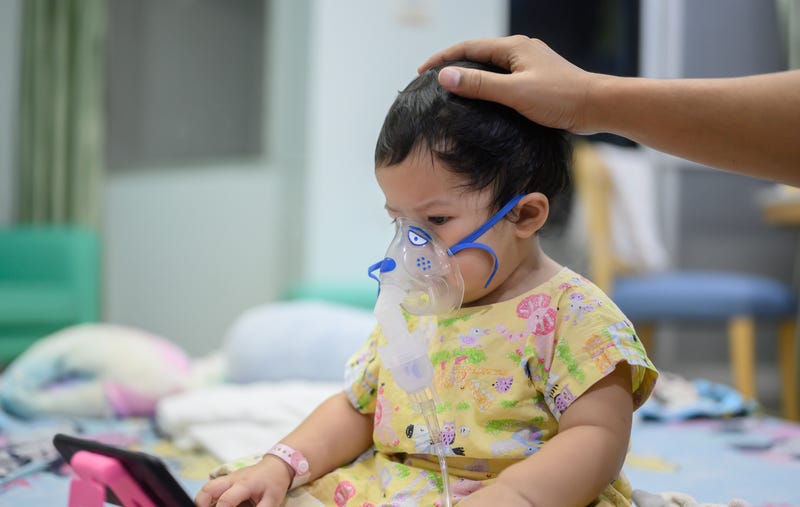
Buffalo, N.Y. (WBEN) - As the cold and flu season trudges on, local doctors are noticing increases in hospitalizations stemming from different respiratory illnesses, such as respiratory syncytial virus or RSV.
"We are definitely seeing an increase in RSV," says Dr. Kathleen Grisanti, President and Medical Director of Pediatric and Adolescent Urgent Care of Western New York told WBEN on Monday.
For many, RSV is uniform to the common cold and shouldn't require a trip to urgent care or the hospital. However, for young infants and the elderly, it could present with serious breathing problems.
"What we see a lot in infants with RSV is that they will be coughing a lot, kind of choking, they have a lot of mucus, they'll definitely have a runny nose. Parents will often hear wheezing, they can struggle to breathe and sometimes can work so hard to breathe, they get themselves dehydrated and they're really not able to drink," said Dr. Grisanti.
Dr. Grisanti says it is important to identify the signs.
"The things that we tell parents to watch for is if they're breathing too hard, [if they are experiencing] what we call retractions where the knots in their neck, in the skin and between the ribs suck in with each breath. If they're breathing too fast, if they're breathing once every second. Any signs of blueness we will monitor their oxygen saturations, but if they notice any blueness of of lips fingers or toes, that's a sign they're not getting enough oxygen. Some babies get dehydrated by working so hard to breathe that they aren't taking in enough fluids, so making sure that they're having at least three wet diapers in a 24-hour period."
Dr. Grisanti says they test children usually under the age of 1 year and children under the age of 6 months are at the highest risk. RSV can be dangerous in infants who are still developing their strength and their immune systems, and is the leading cause of hospitalization in babies aged 1 and younger.
"There's no magic treatment for RSV, it's basically very supportive care," said Dr. Grisanti. "Suctioning their noses so that they can breathe, and drink is important. Keeping their fever under control so that they're not breathing too fast, making sure that they're well hydrated. If they're not able to do that on their own, sometimes they need supplemental oxygen in the hospital. Sometimes they need to have an IV to keep them well hydrated, and sometimes if they're working too hard to breathe, they require treatment such as high flow oxygen in the hospital."
The RSV vaccine, like the flu shot, is widely available, but not for infants.
"The RSV vaccine is only available for adults over the age of 60. There is not a good vaccine for infants at this point. Pregnant women often are given the RSV vaccine so that the infants can be protected when they're born. Infants that are premature are often given a special vaccine while in the hospital in the NICU, but the general population of of infants and newborns, there's not an available, good vaccine to protect them at this point."
Dr. Grisanti notes prevention measures play a critical and important role in minimizing cases of RSV.
"It's important that the public understands that they really should not be touching infant's hands, kissing babies or anything like that. Please don't go in the supermarket and grab an infant's hand just to say hi because they're adorable, that's how germs can be spread and you're putting these babies at at risk. I think we've learned a lot from COVID as far as hand sanitizing and wearing masks, but I think the important thing is really to stay home if you're sick, and try not to spread the virus to others."
